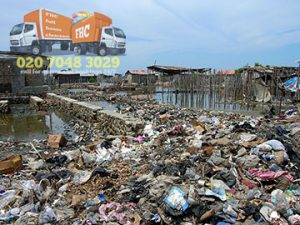Effective waste management has always required large scale investment, from both governments and private partnerships. In many instances, investment is the only problem faced by new waste management projects. A good example to illustrate this would be the recycling industry which is quite dependent on governmental subsidies, especially in times of struggle such as now with low oil and energy prices hitting the recycling industry hard. AcuComm’s Waste Business Monitor Report for 2015 which is one of the leading sources on waste management investment worldwide has actually indicated a couple of facts which could be considered as real eye-openers.
 In twenty fifteen, out of the top ten countries around the world where waste management investments have real potential value, five are classified as developing nations. Here, India is leading the race of waste management investment value, followed closely by Nigeria and Zambia. South Africa is also in the top five nations where such investments hold the most value.
In twenty fifteen, out of the top ten countries around the world where waste management investments have real potential value, five are classified as developing nations. Here, India is leading the race of waste management investment value, followed closely by Nigeria and Zambia. South Africa is also in the top five nations where such investments hold the most value.- In twenty fifteen, the UK and US still remain the leaders of the developed world when it comes to investment in waste management projects. This applies to both number of proposed projects and the total investment value of these suggested projects. Although waste management investment in both UK and US has dropped since twenty fourteen, figures in the report show that both nations are still spending heavily in waste management innovation.
Accurate data, uncertain predictions
When it comes to investment in potential waste management projects, every idea must be taken with a pinch of salt so to speak, as many of these projects will never be realised. The major issue with investing heavily in such things is uncertainty from above. Obtaining the finance for such waste management projects (even not overly large ones) is often impossible as governments don’t have the money available, or restructuring national budgets in order to allocate the funds may take years. In some cases, last minute planning decisions are turned or cancelled, which halts even the best laid out waste management projects out there. One possible solution is to seek private investment partnerships and many nation opt for it, yet again the problem of uncertainty looms – many investors pull back from projects due to volatile or uncertain national, regional and international markets.
The good news
The good news is that change is happening, and positive things are being done, perhaps at a faster pace than initially expected, and in regions of the world where original expectations weren’t too positive. For example, The Clean India campaign has yielded its first results as evidence of government fund redirection has reached various lower stages of India’s national economy. On the same note, many African countries (previously considered ignorant when it came to waste management) are finally waking up and realising what an environmental disaster waste is bringing to them, and signs of inward investment into waste management are seen in the interest of tourism, property and business.
European waste management giants are also seeing a positive change in many developing nations, which may signal that time has come to once again reorientate waste management investment to toward those countries.



